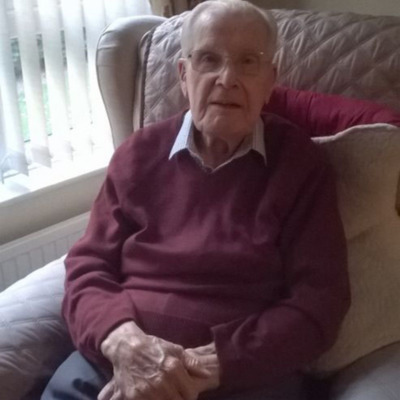Browse Items (77 total)
- Tags: ditching
Eric Coling memoir
Tags: 16 OTU; 1660 HCU; 50 Squadron; aircrew; Anson; bomb aimer; bombing; bombing of Hamburg (24-31 July 1943); Bombing of Peenemünde (17/18 August 1943); crewing up; ditching; Dulag Luft; Gee; H2S; Heavy Conversion Unit; Ju 88; Lancaster; love and romance; Manchester; Master Bomber; mine laying; observer; Operational Training Unit; Oxford; Pathfinders; prisoner of war; RAF Kirmington; RAF Padgate; RAF Skellingthorpe; RAF Swinderby; RAF Upper Heyford; recruitment; training; V-2; V-weapon; Wellington; Window
Interview with Ron Tomlin
Interview with Ernie Patterson. Two
Tags: 635 Squadron; aircrew; Bennett, Donald Clifford Tyndall (1910-1986); bombing; crewing up; Distinguished Flying Medal; ditching; FIDO; H2S; Halifax; Lancaster; love and romance; Master Bomber; military service conditions; Morse-keyed wireless telegraphy; P-51; Pathfinders; RAF Abingdon; RAF Downham Market; RAF Middleton St George; RAF Rufforth; RAF Stanton Harcourt; RAF Yatesbury; superstition; target indicator; training; Whitley; wireless operator
Interview with James McKenzie Leith
A speck of history from long ago and far away
Tags: air sea rescue; B-24; ditching; Ju 88; RAF Dunkeswell; shot down
Memories of an Airman
Tags: 102 Squadron; 1652 HCU; 19 OTU; air gunner; Air Gunnery School; air sea rescue; aircrew; Anson; Cook’s tour; crewing up; demobilisation; ditching; Dominie; ground personnel; Halifax; Harris, Arthur Travers (1892-1984); Heavy Conversion Unit; Hurricane; Ju 88; Magister; military living conditions; military service conditions; Morse-keyed wireless telegraphy; Operational Training Unit; Oxford; Proctor; RAF Bridgnorth; RAF Burtonwood; RAF Halton; RAF Hednesford; RAF Kinloss; RAF Madley; RAF Marston Moor; RAF Pembrey; RAF Pocklington; recruitment; Spitfire; training; Wellington
Interview with Nelson Nix
Just Another Tailend Charlie
The Earliest Years.
Born in Barnoldswick, then in Yorkshire, now in Lancashire in 1922. His father ran a wireless business until 1926. He describes his years at schools and a move to…
Tags: 109 Squadron; 142 Squadron; 150 Squadron; 1661 HCU; 227 Squadron; 25 OTU; 30 OTU; 5 Group; 617 Squadron; 84 OTU; 9 Squadron; air gunner; Air Gunnery School; aircrew; Albemarle; Anson; anti-aircraft fire; B-17; B-24; Beaufighter; bomb aimer; bombing; bombing of Dresden (13 - 15 February 1945); C-47; Defiant; Distinguished Flying Cross; Distinguished Flying Medal; ditching; FIDO; flight engineer; Flying Training School; Gee; ground personnel; Halifax; Harvard; Heavy Conversion Unit; Hudson; Hurricane; Initial Training Wing; Ju 87; Ju 88; lack of moral fibre; Lancaster; mess; military discipline; Morse-keyed wireless telegraphy; Mosquito; navigator; Operational Training Unit; Oxford; Pathfinders; prisoner of war; RAF Balderton; RAF Bardney; RAF Bawtry; RAF Catfoss; RAF Desborough; RAF Eastleigh; RAF Farnborough; RAF Finningley; RAF Graveley; RAF Hemswell; RAF Hixon; RAF Holme-on-Spalding Moor; RAF Milltown; RAF Norton; RAF Scampton; RAF Seighford; RAF Strubby; RAF Syerston; RAF Waddington; RAF Wick; RAF Winthorpe; RAF Wyton; searchlight; Spitfire; sport; Stirling; Sunderland; Tiger force; Tiger Moth; training; Wellington; wireless operator / air gunner; Women’s Auxiliary Air Force
Interview with Reg Woolgar
Tags: 10 OTU; 100 Group; 192 Squadron; 49 Squadron; 617 Squadron; 83 Squadron; aircrew; Anson; anti-aircraft fire; ditching; entertainment; fear; FIDO; final resting place; Gneisenau; Goldfish Club; Hampden; killed in action; mine laying; missing in action; Operational Training Unit; RAF Foulsham; RAF Scampton; RAF Upper Heyford; RAF Yatesbury; Scharnhorst; searchlight; training; Walrus; Wellington; wireless operator / air gunner
Interview with Maurice Stoneman
Tags: 57 Squadron; 9 Squadron; air gunner; air sea rescue; aircrew; anti-aircraft fire; bale out; bombing; crash; ditching; flight engineer; Gneisenau; Ju 88; Lancaster; Lancaster Finishing School; mess; military ethos; military service conditions; mine laying; Operation Manna (29 Apr – 8 May 1945); prisoner of war; RAF East Kirkby; RAF Swinderby; training
Interview with Lawrence Henry di Placito. Two
Interview with John Louis Goldby
Tags: 640 Squadron; 78 Squadron; aircrew; Blenheim; bomb aimer; bombing of Cologne (30/31 May 1942); Distinguished Flying Cross; ditching; Dulag Luft; Halifax; Hampden; Lancaster; mid-air collision; observer; Operational Training Unit; prisoner of war; RAF Linton on Ouse; RAF Marston Moor; RAF Moreton in the Marsh; RAF Riccall; RAF St Eval; RAF Stanton Harcourt; Stalag Luft 1; training; Wellington; Whitley
EASCO life jacket light
One image shows the item fully assembled.…
Tags: ditching
Strike to defend
Tags: 5 Group; 8 Group; 83 Squadron; aerial photograph; air gunner; aircrew; anti-aircraft fire; Bennett, Donald Clifford Tyndall (1910-1986); bomb aimer; bombing; briefing; debriefing; ditching; flight engineer; Holocaust; Lancaster; navigator; Pathfinders; perception of bombing war; pilot; RAF Wyton; searchlight; target indicator; target photograph; wireless operator
Interview with Eric Coling
Interview with Ken Done
Interview with Jack Marshall
Tags: 11 OTU; 115 Squadron; 7 Squadron; air gunner; aircrew; bombing; bombing of Cologne (30/31 May 1942); Distinguished Flying Cross; ditching; Goldfish Club; Lancaster; military service conditions; Operational Training Unit; Pathfinders; RAF Bassingbourn; RAF Marham; RAF Oakington; RAF Uxbridge; Stirling; training; Wellington
Reg Woolgar's observer's and air gunner's flying log book
Tags: 16 OTU; 192 Squadron; 49 Squadron; air gunner; Air Gunnery School; aircrew; Anson; B-17; Battle; bombing; bombing of the Creil/St Leu d’Esserent V-1 storage areas (4/5 July 1944); C-47; Cook’s tour; crash; ditching; Dominie; Halifax; Halifax Mk 3; Hampden; Hudson; Lancaster; Lancaster Mk 1; Lancaster Mk 3; Manchester; Martinet; mine laying; Normandy campaign (6 June – 21 August 1944); Operational Training Unit; Oxford; RAF Barrow in Furness; RAF Foulsham; RAF Fulbeck; RAF Manby; RAF Peterborough; RAF Scampton; RAF Sutton Bridge; RAF Upper Heyford; RAF West Freugh; RAF Wigsley; RAF Yatesbury; Tiger Moth; training; Wellington; Whitley; wireless operator / air gunner; York
Crew procedures for ditching
Tags: ditching; Goldfish Club
J Brennan's observer's and air gunner's flying log book
Tags: 102 Squadron; 1663 HCU; 24 OTU; 28 OTU; 35 Squadron; Air Gunnery School; aircrew; Anson; bombing; bombing of Hamburg (24-31 July 1943); C-47; ditching; Halifax; Heavy Conversion Unit; Lancaster; Operational Training Unit; RAF Castle Donington; RAF Graveley; RAF Honeybourne; RAF Rufforth; RAF Wymeswold; training; Wellington; Whitley; wireless operator / air gunner
Roy Hastie's pilot's flying log book
Tags: 223 Squadron; aircrew; Anson; B-24; B-25; Beaufighter; Blenheim; bombing of Dresden (13 - 15 February 1945); Botha; ditching; Flying Training School; Heavy Conversion Unit; Hudson; Hurricane; Operational Training Unit; Oxford; pilot; Proctor; RAF Catfoss; RAF Dishforth; RAF Eastleigh; RAF Feltwell; RAF Oulton; RAF Riccall; RAF Thornaby; Spitfire; Tiger Moth; training; Window
Eric Frederick Coling's observer's and air gunner's flying log book
Tags: 16 OTU; 1660 HCU; 50 Squadron; aircrew; Anson; bomb aimer; bombing; bombing of Hamburg (24-31 July 1943); Bombing of Peenemünde (17/18 August 1943); ditching; Heavy Conversion Unit; Lancaster; Lancaster Mk 1; Lancaster Mk 3; Manchester; mine laying; missing in action; Operational Training Unit; Oxford; RAF Skellingthorpe; RAF Swinderby; RAF Upper Heyford; training; Wellington

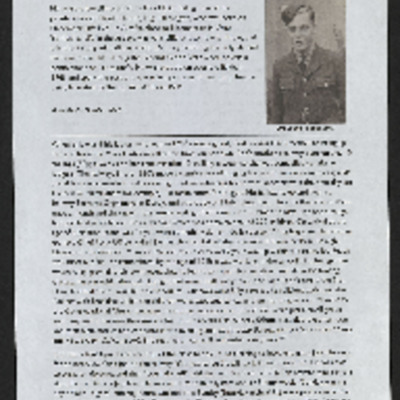
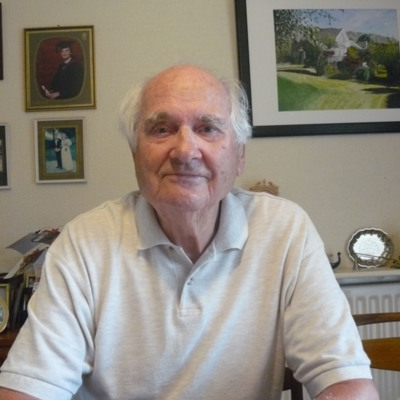
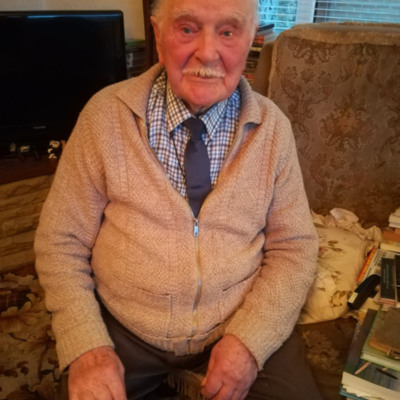

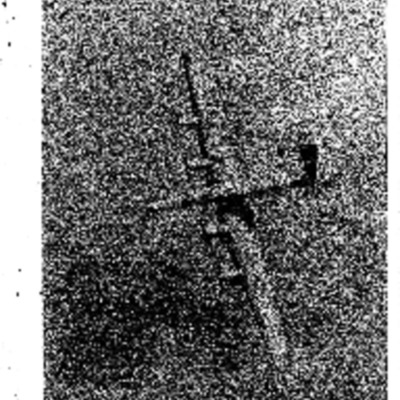
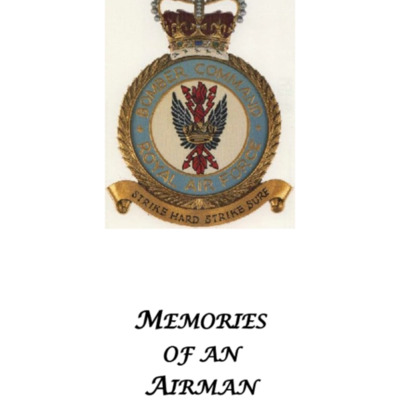

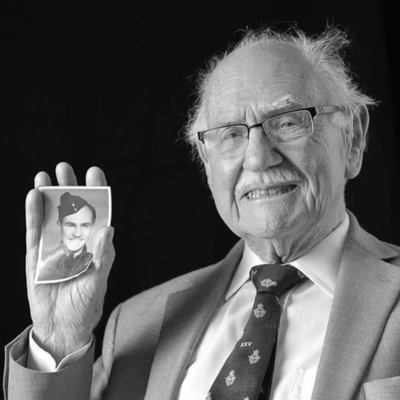
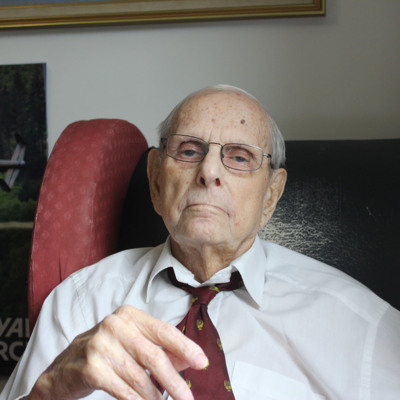
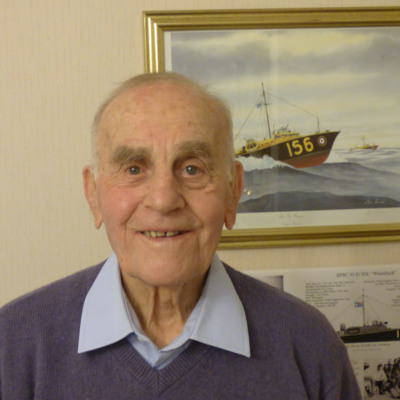
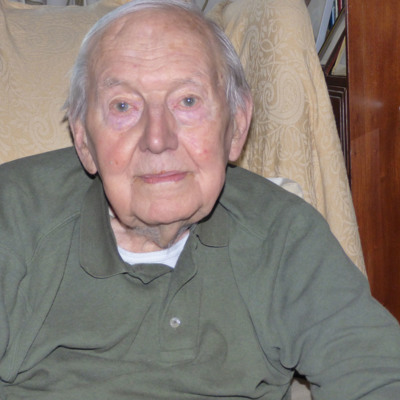

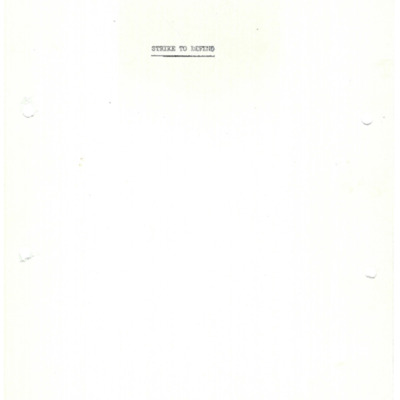
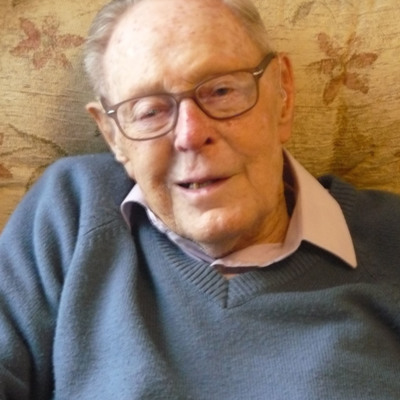

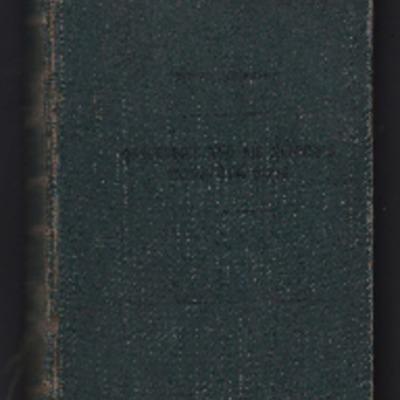
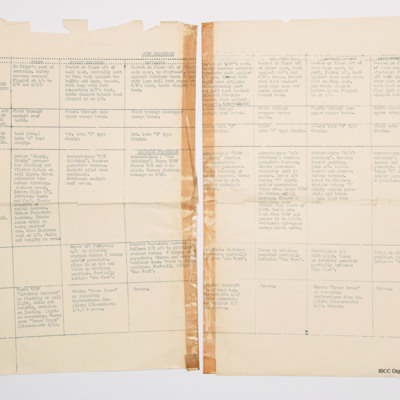
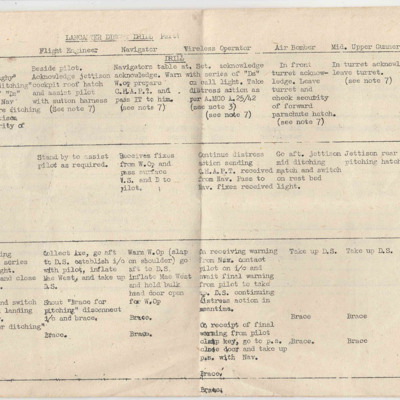
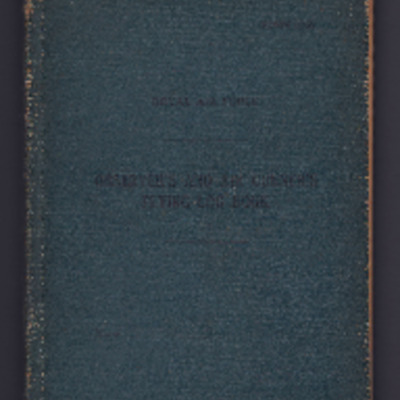
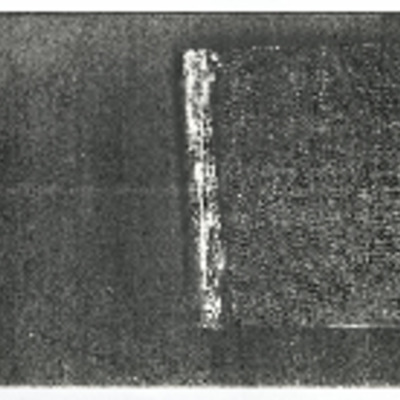
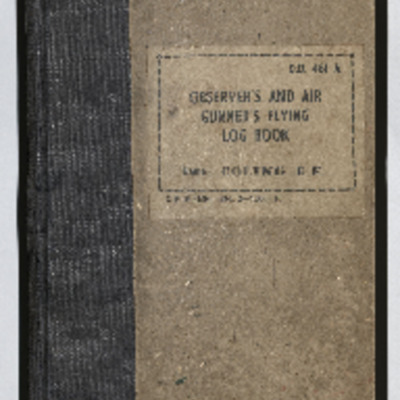
![EAdamsHGAdamsBHB[Mo]440509-0001.pdf EAdamsHGAdamsBHB[Mo]440509-0001.pdf](https://ibccdigitalarchive.lincoln.ac.uk/omeka/files/square_thumbnails/194/27207/EAdamsHGAdamsBHB[Mo]440509-0001.jpg)
